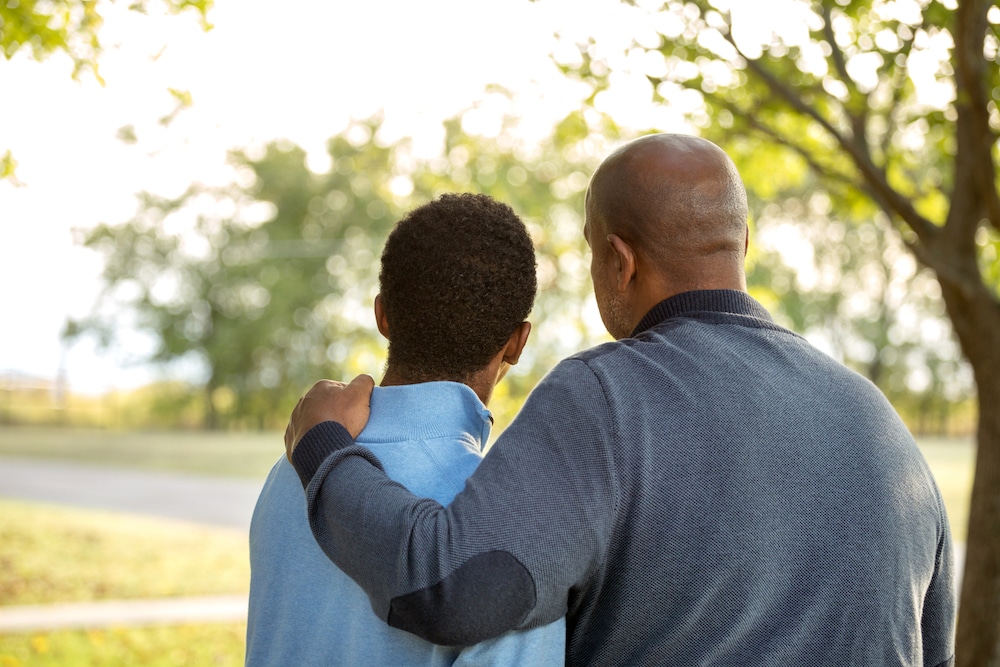Pride Month may be over, but the transgender issue is raging. Cases of gender dysphoria in youths have increased dramatically — from 0.2% in 2007 to as much as 9% in some cities in 2021. There are currently more than 40,000 young girls seeking to crowdfund double mastectomies on sites like GoFundMe — before their breasts have even finished developing.
This dualistic understanding of the human person, in which the body is extrinsic to the “real self,” is a spiritual belief about our identity that is at odds with Catholic teaching and sound science. St. Pope John Paul II left us a beautiful legacy in his Theology of the Body, a way of understanding the truth about our identities that has been written into our physical selves by our very Creator. God has made us complementary embodied beings — male and female. Our bodies reflect the truth of who we are and who God calls us to be in relation with one another. Pope Francis has reiterated this teaching, identifying gender ideology as among the “most dangerous” of issues we face today.
Despite the fact that the narrative promoting “affirmation” for transgender children is entirely contrary to Catholic understanding that our complementary male and female bodies are good, some Catholic institutions are caving under pressure to conform to these demeaning and destructive societal norms.
As states such as California and Washington prepare to charge parents with child abuse for refusing to deny the reality of a child’s biological sex, it is critical that parents seek a solid understanding of the transgender issue. Whether this is a battle you are called to face for the sake of your own child or one you must fight on behalf of others, protecting our children from the destructive and dehumanizing childhood transition movement is a hill worth dying on.

Know the facts
1. Childhood gender dysphoria is temporary.
The gender “affirmation” narrative operates under the assumption that children’s feelings and desires reign supreme. It is imperative that we recognize that even teenagers lack the capacity for informed consent when it comes to sacrificing things like their future health, fertility, sexual function and longevity. What they want now will not necessarily persist as they mature. In fact, research suggests that an overwhelming 93% of children with gender dysphoria see symptoms resolve without transition.
2. The push for gender transition is a fad and a social contagion.
The explosion of rapid-onset gender dysphoria (ROGD) indicates that it is a social contagion on par with anorexia. Interestingly, the curve on graphic representations of the increase in use of cross-sex hormones mirrors the skyrocketing use of the lobotomy in the 1940s and ’50s. This novel procedure actually won the Nobel Prize before it quickly fell out of favor as its damaging effects were discovered. We ought to learn from history and exercise caution before fanatically adopting novel medical procedures, particularly when their long-term effects are unstudied, physically damaging and irreversible.
3. Gender transition is not in the interest of the patient.
This is a societally-sanctioned experimentation on vulnerable children to line the pockets of the pharmaceutical industry. So-called “puberty blockers” are, in fact, drugs for treating conditions such as endometriosis and cancer; none have been approved to treat gender dysphoria. Twenty U.S. states, as well as countries such as Sweden, Finland and the U.K., have already banned their use in pediatric patients, recognizing how harmful these procedures are, particularly to children who lack the maturity and capacity for truly informed consent.
Surgery and hormone therapy carry serious risks and lifelong consequences. The medical side effects of hormone therapy include increased aggression, loss of bone density, increased risk of blood clots and heart disease, premature brain aging and loss of fertility. Surgical transition can cost upwards of $150,000, has a high likelihood of debilitating side effects and renders the patient permanently infertile. With courageous detransitioners coming forward in droves to share the tragic effects of these mutilating and sometimes debilitating procedures, who is benefiting?
4. This experimental “care” is highly profitable.
According to Forbes, the gender transition industry could potentially gross $200 billion. While major pharmaceutical companies insist that a unilateral treatment path beginning with hormones and ending in surgery is in the best interest of patients, it is often tight-lipped about the $15,000 per year it can expect to cash in when a child is placed on “puberty blockers” and cross-sex hormones. Planned Parenthood offers same-day prescriptions for cross-sex hormones on an “informed consent” model, meaning that your child can obtain these drugs without your consent and absent any psychological evaluation.
True healing does not come from the destruction of an otherwise healthy body. It is a permanent “solution” to a temporary problem.
5. Any hope offered by these “treatments” is illusory.
Medical transition is not a “solution” at all. Individuals who suffer from gender dysphoria have comparatively high levels of comorbidities like body dysmorphia, eating disorders, anxiety and depression. These conditions need to be addressed via effective means of treatment. Pumping the body full of hormones and rearranging the flesh has not been shown to effectively resolve any of these issues. On the contrary, suicide rates are exponentially higher in these populations post-surgical transition.
Take action
1. Listen and pray.
First, listen to and pray with your child. Feeling heard and understood can often make a huge difference. Encourage your child to talk with Jesus about the pain he or she may be feeling.
2. Find a better provider.
Parents are often presented with the heart-wrenching line, “Do you want a dead son or a live daughter?” This is a false dichotomy. As therapist Stephanie Winn points out, anyone who legitimizes the threat of suicide to get something they want is encouraging pathological behavior that is damaging to your child.
Gender dysphoria has a high correlation with Autism Spectrum Disorder (ASD), as well as with adverse childhood events (ACES). If you are aware of traumatic events, seek out a therapist who is trained in eye movement desensitization and reprocessing (EMDR), a technique that detransitioner Walt Heyer often recommends to those seeking to alleviate dysphoric symptoms. Even if you cannot point to specific instances of trauma, this care may uncover and provide healing for previously unknown trauma, such as sexual abuse. When providers unilaterally offer a single treatment path without exploring or resolving the underlying causes of dysphoria, symptoms are likely to continue until festering wounds can be healed.
3. Seek genuinely affirming voices.
Detransitioners themselves often recommend cutting off contact with trans support groups and online “communities” that may serve as sources of indoctrination (similar to the ways some “communities” of anorexics “encourage” one another with self-starvation tips, for example). Documentary films such as “No Way Back: The Reality of Gender-Affirming Care,” “The Detransition Diaries” and “What Is a Woman?” reveal the terrible harms that come from believing the lie that the body is irrelevant to our innermost identity. The transgender narrative promoted by social media, major pharmaceutical companies and our culture omits so many voices essential for fostering a true understanding of what these children are experiencing.
4. Make sacrifices.
If you are in a state where schools are encouraged to withhold information from parents, or even revoke custody for protecting your child, it is not too drastic to remove your child from that school or your family from that state.
Above all, remind your child of the beauty and intricacy of God’s design for his or her identity — including his or her body — and that in all things, even this, God works for the good of those who love him (cf. Rom 8:28). The road we are called to travel may be difficult, but as St. Teresa of Kolkata reminds us, “Love demands sacrifice. But if we love until it hurts, God will give us his peace and joy.” God will never call us to do something we cannot do — with the help of his grace.
God made you the parent of this child for a reason. It is your ferocious love — and God’s — that your child needs most.





